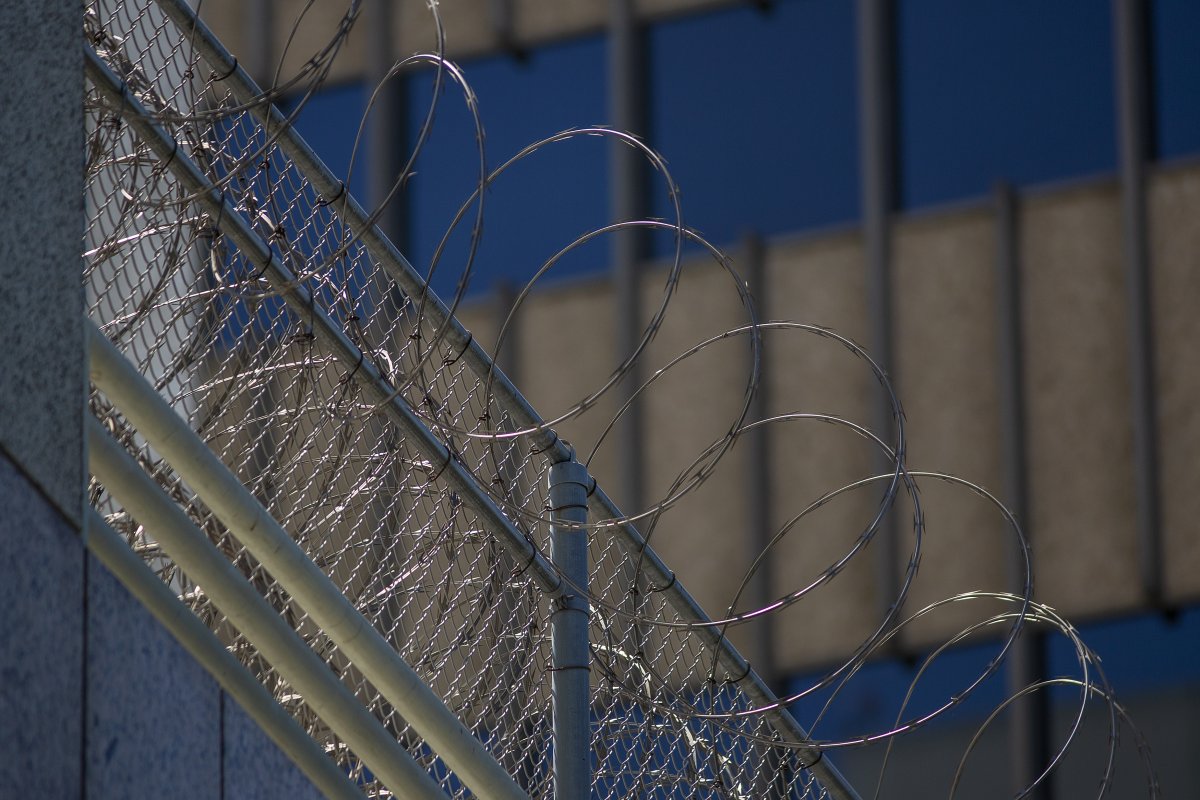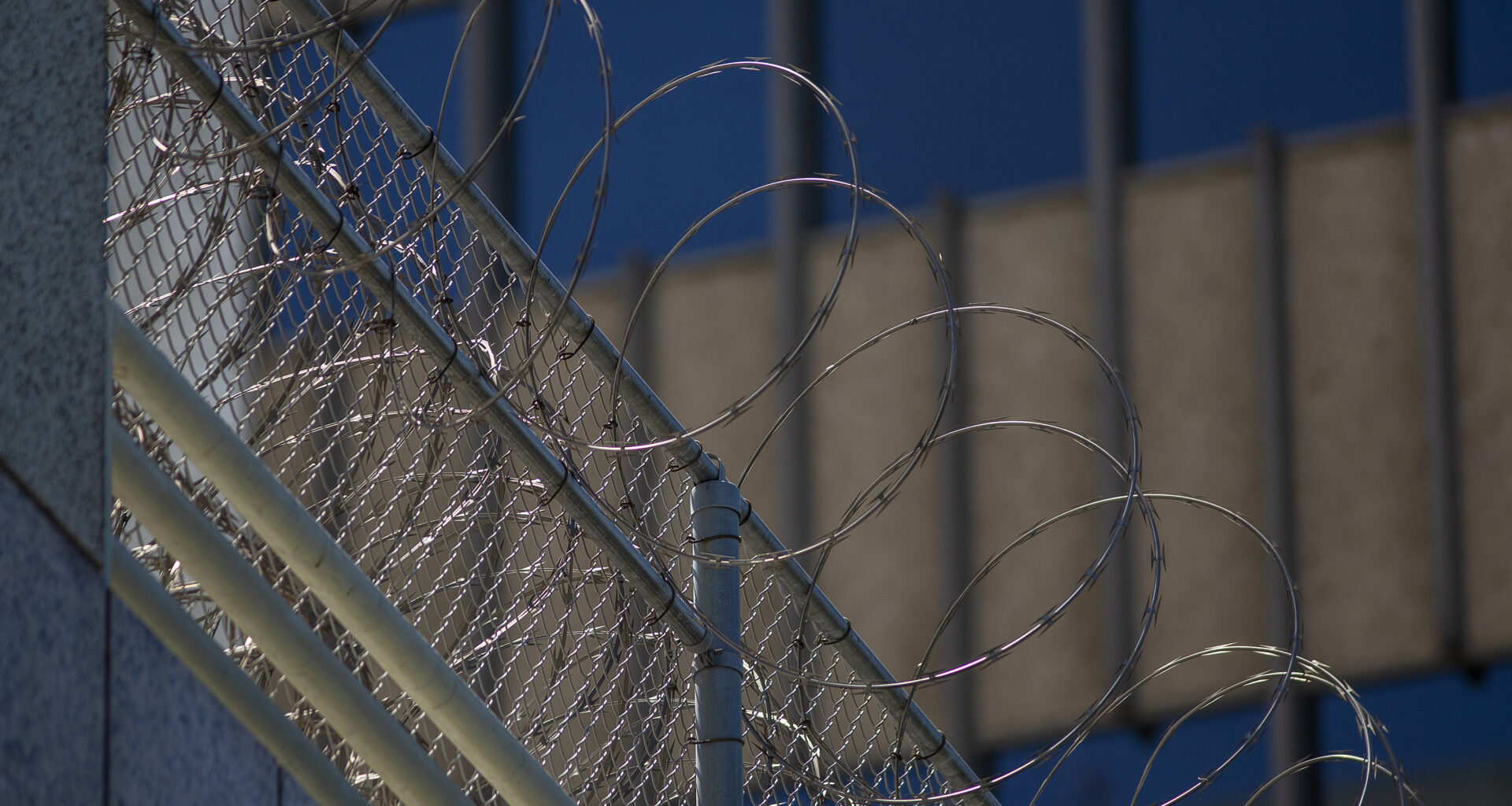Rats running across sandwich bread. Seventy people in a crowded bunk room without air conditioning with outside temperatures nearing 90 degrees. A woman begging for four and a half months to see a doctor for suspected colon cancer, and still she waits. Another woman finally granted a doctor’s visit, only to be sexually assaulted.
These are some of the horror stories we heard during our recent visit to ICE detention centers across Louisiana, many of which are run by the notorious GEO Group, a private prison operator. These stories aren’t the exception. These facilities, mostly located in remote towns far from legal aid or media scrutiny, are the frontlines of a growing humanitarian crisis.

Razor wire is seen.
Razor wire is seen.
David McNew/Getty Images
Since the start of the second Trump administration, the federal government has shuttled more than 40,000 people through immigration detention centers across Louisiana in an effort to make the state the “FedEx” of immigration enforcement, likening people to packages. These detentions have subjected staggering volumes of people to human rights abuses, including the denial of drinkable water, confinement in filthy conditions, withholding of basic medical care, and physical and sexual abuse.
Americans across the country have taken to the streets protesting the Trump administration’s cruel immigration policies. But opponents of those policies may be unwittingly supporting them.
How? Through their investment portfolios.
Profit Drives the Immigration Agenda
The president’s mass deportation agenda relies on an expansive immigration detention network run by for-profit companies, such as The GEO Group. After donating $1 million to the president’s election campaign, GEO now expects Trump’s cruel policies to boost its annual revenue by $400 million.
If you have a retirement account, you may very well be invested in The GEO Group. For many of us, the default option in our retirement accounts is a target date fund, many of which invest in GEO Group and other for-profit prison companies. Among the top investors in GEO Group overall are several common index funds that you may hold. Those investments provide the resources that GEO Group uses to lock up hundreds of thousands of people each year.
GEO Group maximizes profits by running virtual indentured labor camps and scrimping on basic health and safety measures, leading to poor medical care, inhumane conditions, and deaths. But these business practices aren’t just ethically dubious. They create serious financial risks for investors in the form of costly legal and reputational liabilities.
How To Divest From GEO Group—and Others That Profit off Detainees
GEO Group—and other private prison operators like CoreCivic—benefit from our 401(k)s and other resources we place into index funds. If you are one of the many people shocked and appalled by our privately driven immigration system, or even if you’re simply concerned about serious financial risks inherent in the private prison model, here are a few things you can do to keep your money from being used against your values:
—The first thing to do is understand where your money is going. If you have a 401(k), pension or other institutional investment through index funds or similar, you should look closely at where, exactly, your money ends up. Your employer or broker can give you detailed information on which companies make up your investment portfolio.
—Once you have a better understanding of your investments, you can make different choices with your money. Contact your financial service firm or brokerage account provider to see if it offers investment options that exclude private prison companies.
—The real challenge is that many private prisons—like GEO Group and CoreCivic—are listed on the S&P 500, which includes the largest companies on the U.S. stock market. By investing in index funds that replicate the S&P 500, you are investing in all of the businesses included in it, including private prison companies. Convincing financial products companies to offer products that exclude private prisons will require a large amount of advocacy. In the meantime, investors can consider financial products like the FREE Index (FREEIN), a publicly available index that identifies and tracks companies who lead in fair chance hiring and disrupt the prison industrial complex, without sacrificing returns.
Groups such as the National Network for Immigrant and Refugee Rights and Prison Free Funds have also developed campaigns to divest from private prisons, including tools to support individuals to understand what is included in investment portfolios and offer other advocacy steps they can take.
The Trump administration’s cruel detention network ultimately relies on our financial support. Pulling our money from privatized immigration detention can help save lives, shut these inhumane detention centers down, and even contribute to more sustainable investment returns. Invest your money in ways that don’t harm the causes you support. That, too, is using your voice for good.
Kerry Kennedy is a human rights activist, lawyer, and president of Robert F. Kennedy Human Rights.
Alanah Odoms is the executive director of ACLU of Louisiana.
The views expressed in this article are the writers’ own.
